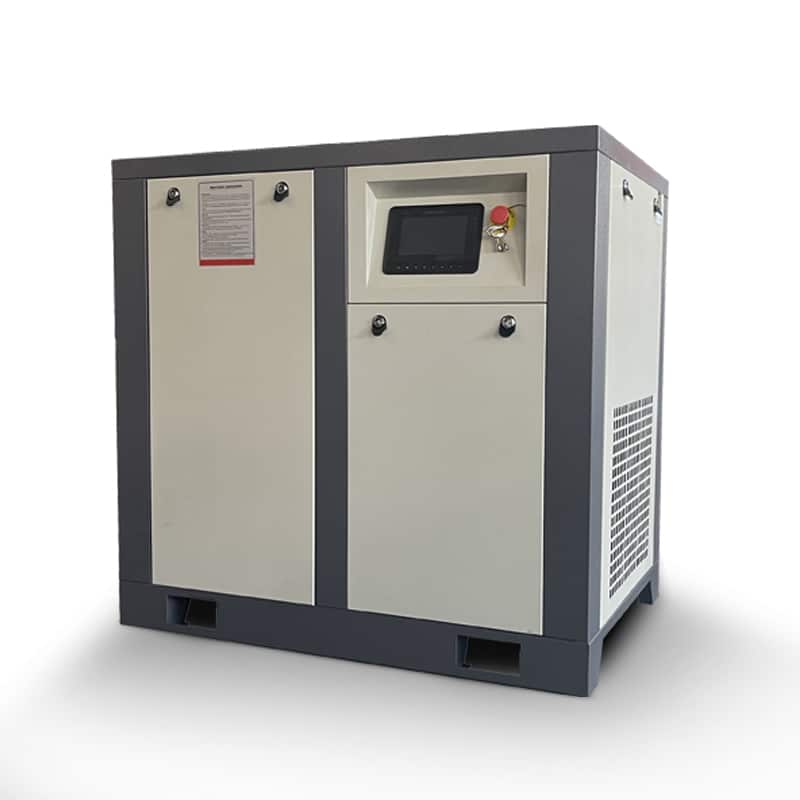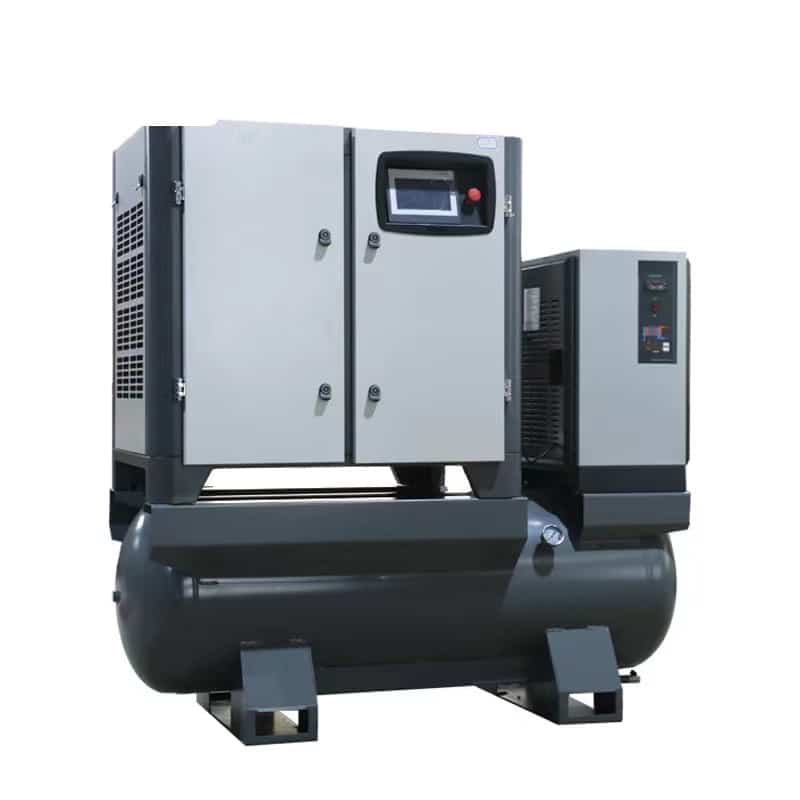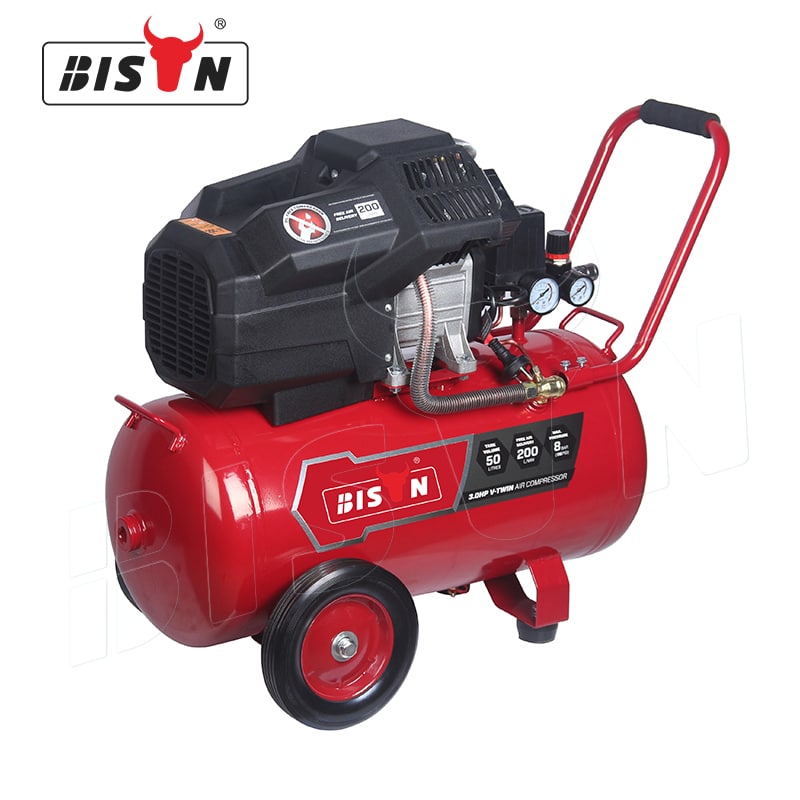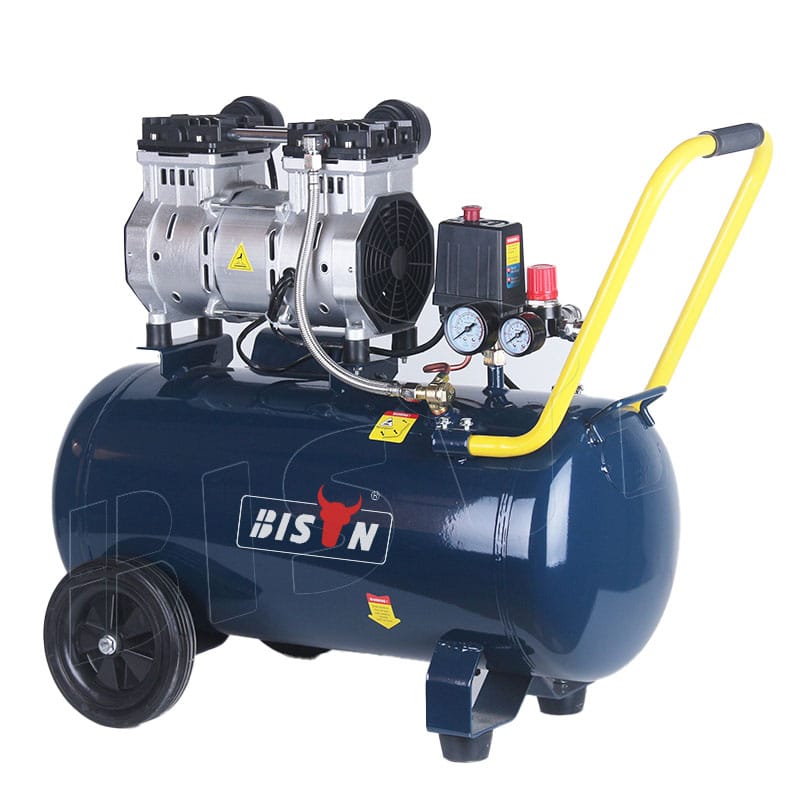air compressor blog
How long does the air compressor last?
- Dec 10, 2023
If you’ve invested a lot of money in a brand new industrial compressor like rotary air compressor for your business, you might wonder, ‘How long will it last?’
The life expectancy of an air compressor depends on its type, how well it is maintained, and how much it will be used. Because of this, compressor life expectancy is usually measured in hours rather than years. It is more accurate because it considers how often it is used. If you use your compressor 2 hours a day, it will last for more years than if you use it 24/7. A regularly serviced compressor should generally last about 50,000 hours, although this varies by type.
As a air compressor supplier, BISON covers the average life expectancy of different compressors, factors affecting life expectancy, and some valuable tips to help your compressor last longer in this air compressor guide.
What is the average life expectancy of different types of compressors?

Different types of air compressors have very different life expectancies.
Here are some rough estimates of average life expectancies for different compressors:
- Air compressors that run 24/7 typically last about 50,000 hours or six years.
- Rotary screw air compressors usually last more than 100,000 hours.
- Oil-free rotary screw compressors last approximately 70,000 hours.
- Centrifugal air compressors should last more than 250,000 hours.
It’s important to remember that these are just estimates, and your compressor’s life expectancy will depend on your machine’s exact make and model and how regularly it is serviced and maintained.
What factors affect the life expectancy of your air compressor?
Apart from the typical deterioration of using your compressor, other factors can affect how long your compressor lasts.
Here are some of the factors that are most detrimental to the health and longevity of your compressor.
Oil quality
Using low-quality oil to lubricate your compressor can reduce its performance. Stale oil can also corrode the metal components of your machine. Using different oil grades or mixing old and new oil also shortens the life expectancy of your device.
Storage
Where you store your compressor can affect how long it lasts. Dust and dirt can damage your compressor’s valves, reducing life expectancy.
Pollution
Dust particles must be filtered before the air enters your compressor. If debris contaminates the supply, this can reduce the life expectancy and function of your machine.
Cooling
Improper cooling can cause your compressor to overheat, shortening the machine’s longevity. You must make sure that the room where your compressor is located is well-ventilated.
How to extend the life expectancy of your air compressor?

As an air compressor manufacturer, BISON understand the importance of maximizing the lifespan of your equipment. Regular maintenance and proper care can significantly extend the life expectancy of your air compressor, saving you time and money in the long run. Here are several essential tips to help you :
Regular Maintenance: Just like any other machinery, air compressors require regular maintenance. This includes checking and changing the oil, inspecting and replacing air filters, and ensuring that all components are working properly. Follow the maintenance schedule outlined in your equipment’s manual.
Keep It Clean: Regularly clean the exterior of your air compressor to prevent dust and debris from accumulating. A clean compressor runs more efficiently and is less likely to experience overheating or other performance issues.
Monitor Ambient Temperature: Extreme temperatures can impact the performance and longevity of your air compressor. Ensure that the compressor is installed in a well-ventilated area with a moderate temperature to prevent overheating or excessive wear on internal components.
Check for Leaks: Air leaks not only waste energy but also put unnecessary strain on the compressor. Regularly inspect the system for air leaks and address any issues promptly.
Use Quality Parts and Lubricants: When replacing parts or adding lubricants, always use high-quality products recommended by the manufacturer. Using subpar components can lead to premature wear and damage to your compressor.
Proper Storage: If the air compressor is not in use for an extended period, ensure it is stored in a clean, dry environment. Follow the manufacturer’s guidelines for proper long-term storage to prevent corrosion and other issues.
Implement a Shutdown Procedure: When shutting down your air compressor, allow it to run without a load for a few minutes to cool down. This helps prevent moisture buildup and ensures that the compressor is ready for the next start-up.
By following these tips and maintaining a proactive approach to caring for your air compressor, you can significantly extend its life expectancy and enjoy consistent, reliable performance for years to come.
Remember, every air compressor is unique, so always refer to the manufacturer’s guidelines and recommendations for specific maintenance and care instructions.
At BISON machinery Co.,ltd, we’re committed to helping our customers get the most out of their air compressors. Contact BISON for more information on maintenance best practices or to explore our range of high-quality air compressor products.
frequently asked questions about How long does the air compressor last?
What is the purpose of an air receiver tank in a compressed air system?
An air receiver tank stores compressed air and maintains a constant air pressure in the compact air system. When compressed air is stored in a tank, the system can handle periods of peak demand without constantly operating at maximum capacity. The tank acts as a buffer, reducing compressor cycling and lessening deterioration on the system.
Can you extend the life of your air compressor tank by using a larger tank size?
A larger air compressor tank can increase its lifespan by reducing the cycling frequency and wear and tear on the tank. When a larger tank is used, it allows the compressor to run less often and work less hard. This can extend the tank's life. However, regardless of size, the tank must be properly maintained to ensure longevity. Regular inspections, draining the tank regularly, and replacing worn parts can help keep the tank in good condition.
When should you replace your air compressor?
Compressors typically have an average lifespan of 10-15 years, given the harsh climatic conditions in a region. Generally, the user should start thinking about compressor replacement from the 8th year as the time for unit overhaul approaches.
What is the service life of a compressor?
Frequency and intensity of use also play an important part in estimating the lifespan of an air compressor. For example, rotary screw air compressors typically last 50,000 hours or six years on 24/7 operation, while rotary screw air compressors usually last more than ten years.
If you have any enquiries about the BISON air compressor, we would love to hear from you.











